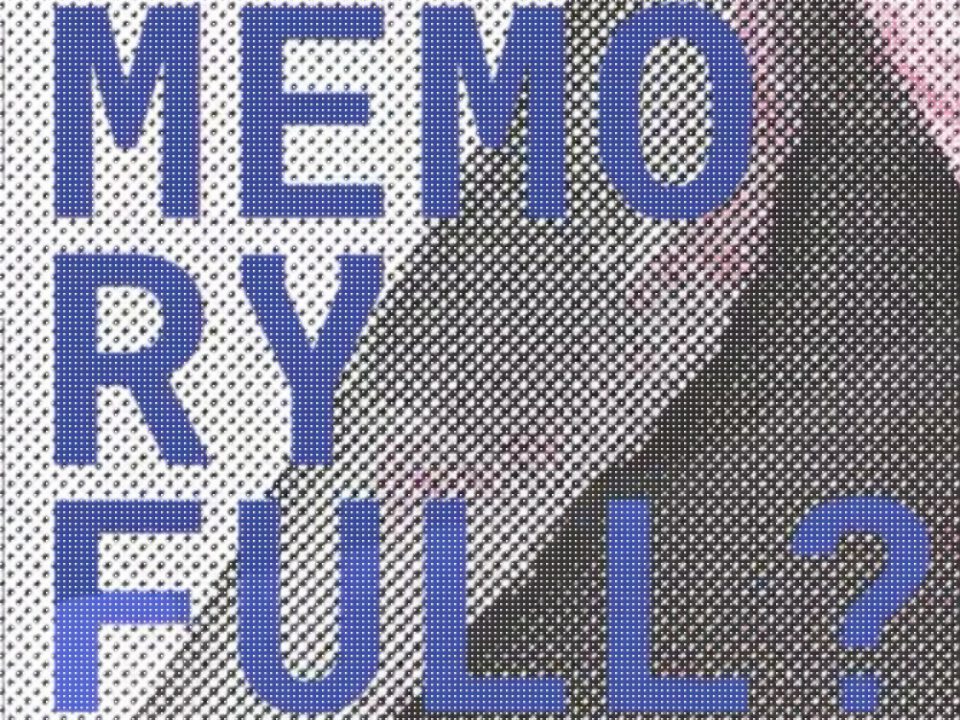Extended Deadline: 1 March 2021
Call for Papers: Annual DHS Conference
Memory Full? Reimagining the Relations between Design and History
2-4 September 2021 | FHNW Academy of Art and Design, Basel, Switzerland
Wie kann das Gedächtnis des Designs interpretiert, vermittelt, genutzt oder dargestellt werden? Die Konferenz ist offen für historische, zeitgenössische und interdisziplinäre Ansätze und lädt Designhistorikerinnen, Studierende und Wissenschaftlerinnen verwandter Fachrichtungen ein, ihre Vorschläge einzugeben. Willkommen sind zudem Beiträge von Schriftstellerinnen, Praktikerinnen, Pädagoginnen, Museumsfachleuten und Aktivistinnen, die sich mit Designgeschichte beschäftigen.
(ausführlichere Informationen: siehe unten)
Extended Deadline: 1 March 2021
Call for Papers Annual DHS Conference
Memory Full? Reimagining the Relations between Design and History
2-4 September 2021 | FHNW Academy of Art and Design, Basel, Switzerland
How can the memory of design be interpreted, shared, mined, or performed? The conference welcomes historic, contemporary and interdisciplinary approaches to the topic and invites contributions from design historians, and students and scholars in related fields; as well as writers, practitioners, educators, museum professionals, and activists who engage with design history.
Reimagining the Relations between Design and History
The “memory full” warning sent by a device when its drive reaches maximum capacity is both an irritant and an incitement for creativity. Responses include upgrading storage, editing and deleting content, or constraining an otherwise unfettered desire to archive everything. Actions like these can be read as a metaphor for how histories of design are shaped. Against a background of multiple temporalities and ontologies for design, this conference sets out to explore the relationship between design and memory. It invites reflection on the entanglements embodied by design between futurity and amnesia, critical discussion on data cultures, and debate around emerging approaches to the designed environment, such as forensics.
How can the memory of design be interpreted, shared, mined, or performed? Stories of social change are recorded in artefacts buried under layers of water or soil, in the plot twists of old novels or vintage media. The legacy of human activity passes into the material culture of non-human species, or enters their very physiology. Practices involving design as means to construct, repair and speculate about the past are integral to processes of codifying both canonic and alternative histories. To what extent can history writing be compared to a design project? Assumptions and bias are embedded in the ways facts are gathered and constructed as habitable stories. How long do these narrations remain functional before they need to be patched with new data? Are machines also learning bias when they are instructed to collect data and present it in meaningful forms?
The conference welcomes historic, contemporary and interdisciplinary approaches to the topic and invites contributions from design historians, and students and scholars in related fields; as well as writers, practitioners, educators, museum professionals, and activists who engage with design.
Relevant topics include, but are not limited to:
- the designed environment as distributed archive
- emerging sites of knowledge production and dissemination
- mediation and consumption of story-telling
- design histories as design fictions
- design and critical heritage
- data cultures in design practice and mediation
- blind spots in the memory of design
- indigenous epistemologies
- decolonizing sites of memory
- alternative genealogies
- design and personal or collective memory
- design history as a form of activism and repair
- the practitioner as a historian, the historian as a practitioner
- relations between design practices and historiography
- designerly ways of doing history
- trans-modern and trans-cultural models
- historicising emerging design practices
- the challenges of digitalisation
- radical pedagogies in design history
Proposals
We welcome proposals for individual papers of 20 minutes, or proposals for thematically coherent panels of three papers. Panel proposals must include abstracts for all three papers in addition to a short description of the panel theme. We also encourage applications that propose alternative formats for research dissemination and collective knowledge production.
The deadline for submitting abstracts is March 1st, 2021.
Proposals should be submitted through web form (link below), and include:
- title
- abstract of up to 300 words
- short biography of each author (up to 60 words)
- authors’ names and affiliations
- description of the format of the contribution (paper / panel / alternative format)
- three keywords
All submissions will be double blind peer-reviewed by the conference scientific committee.
Submit Paper: https://www.memoryfull2021.org/cfp/
Quelle: DHS / Dr. Meret Ernst
